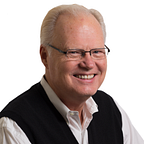Can You Ask
Too many questions?
The pathway to knowledge is through Questions. After generations of just chilling out and being laid back, we find it so much easier if we just accept.
My brother from another Mother (Gavriel) and my best friend Gary are two of the men I admire most in my life. They are both Jewish. Gavriel was a Pentecostal Minister before becoming an Orthodox Jew. Gary’s parents with both Jewish and he grew up in the Reformed community.
Each of them has worked in at least three different companies where I was CEO. I was drawn to each of these men because, like me, they’re always asking tough questions. They are always searching for the void. Something we may have forgotten.
Socrates (469–399 B.C.E.), was a Greek philosopher who's perhaps best known because he mentored (taught) Plato. He challenged what was then known because of his habit of asking disconcerting questions. To this day, and in his honor we continue to teach and use what we now call the Socratic method of questioning what we think we know. The goal is to always be in the pursuit of clarity.
Socrates was ahead of his time. Ask yourself, do I ask enough questions or do I just prefer to accept what’s before me. Socrates was put to death for his pursuit of knowledge and understanding. He questioned everything and taught his students to do the same by always being in pursuit of clarity.
What are some of the tough questions to explore in life? In Rabbi Jonathan Sacks’s Haggadah book: Hebrew and English Text with New Essays and Commentary he asks some of the toughest questions in our lives. Such as:
- Why is there evil?
- Why does the way of the wicked prosper?
- Why do all the faithless live at ease?
- Is there a God?
- What’s the nature of God?
- Do we need God in our lives?
- Why do we worship someone we’ve never seen?
- Is it necessary to do it this way?
These and more are the types of questions in the Rabbi’s very thorough pursuit. Warning, the article that is linked above does not have paragraphs or pagination. It’s difficult to read but well worth your time (approximately 10 minutes).
The Rabbi points out that there are three conditions for asking a Jewish question. These are:
- “The first is that we seek genuinely to learn — not to doubt, ridicule, dismiss, or reject.”
- “The second is that we accept limits to our understanding.”
- “The third is that when it comes to Torah (author adds or any book of instruction), we learn by living and understand by doing. “
In the case of number three above, we all learn by doing. We appreciate the music we listen to because we listen. We understand the needs of others because we listen. We learn and grow because we listen.
Then listening combined with action gives us an even deeper understanding. Do not confuse listening with being silent. Questions will allow us to dig deeper for the who, what, where, when, and why.
If you seek understanding, you’ll ask questions
Here are a few more questions: What are the voids? What are we missing? What could (I or we) be doing better? Is there a way to create greater understanding?
Lastly, why don’t we ask more questions? Are we afraid? Of what? Of whom? Will your further questions change the “status quo?”
If you ask a question, will you have to change now that you know more?
What are your thoughts?
